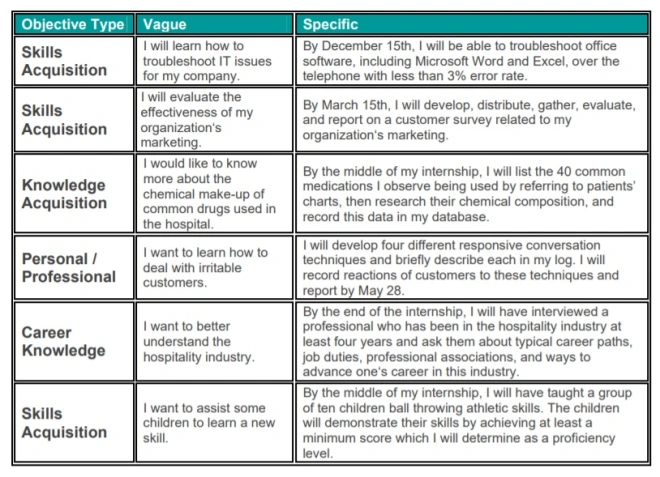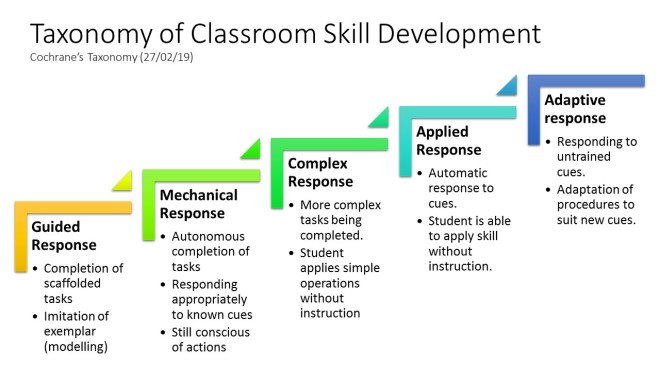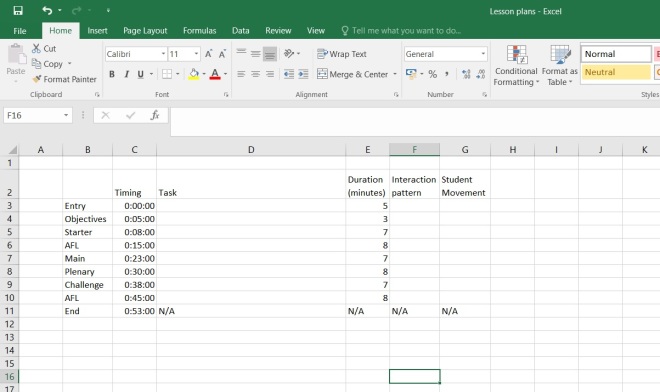I realised this week, due to a number of factors and variables in the school I am in, that my classroom management ability had somewhat atrophied. That’s not to say my classrooms are chaotic (at least any more than I encourage to happen), but that my approach to keeping order had shifted to a “force of personality” approach.
I am currently heavily involved in a boarding house, and have invested quite heavily into to developing relationships with boarders, their friends and the people around them. It made some things easier, in that a significant look can solve minor issues, but when situations unravel it makes things more challenging. The professional disconnect is no longer there, which means that my own composure is compromised and things develop into shouting matches rather quickly.
Put simply; I’m not applying the same level of technique that I used to, relying on the rapport with the student to do the work.
That needs to be fixed, if I hope to not dull my classroom management ability.
So, I watched a quick YouTube video as a refresher course:
The First Thing: Border Control
The best way to avoid shenanigans is to avoid inviting shenanigans in through the door.
The means not letting students drift in through the door, bringing the baggage of the day with them. Dealing with a constant trickle of disruption coming through the door is wearing on a teacher, and essentially means you need to calm a classroom every few seconds.
As a routine, keep your class line up outside the classroom, and start managing behaviour there.
The video above suggests engaging with the students on a personal level before addressing them as a whole group. It’s good advice, and I recommend following it to the letter, particularly for new teachers.
So… how would this work for me:
My classroom
The issue with my classroom is that my corridor is quite thin, and it is also one I share with another 3 teachers. If all of us have lessons, the corridor becomes fairly crowded fairly quickly.
I don’t think there is any practical solution around this, apart from just allowing students to drift into my classroom. It may end up being one member of staff (me) dictating the ready state of the corridor. Which would be quite fun, and certainly something to aspire to.
Morning/evening roll call
A bit of context for our day pupil teaching brethren, otherwise known as the majority of teachers. Roll call in boarding schools is typically handled in house, a practical arrangement since the boarding students are there already. Trying to run a register there is a challenge for two reasons: the list is just longer, requiring a longer time where boisterous boys and giggly girls need to be quiet; and also you reach critical mass of bodies where inappropriate behaviour has a higher chance of happening.
In the past I was more mobile in roll calls, and could just position myself where knots of misbehaviour could occur. In an effort to track and prevent lateness to roll call I started using an Excel spreadsheet to log when boarders were late. This meant being tied to a certain spot with a laptop, and as a result, behaviour in roll calls has become a bit more unruly.
Going forward, I’m going to go back to guard duty on the door, keeping people out of roll call until uniform is ready, or just keeping them quiet as they walk in. I’ll just need to track the lates to roll call on a different spreadsheet.
That’s all for now.
Happy teaching!












